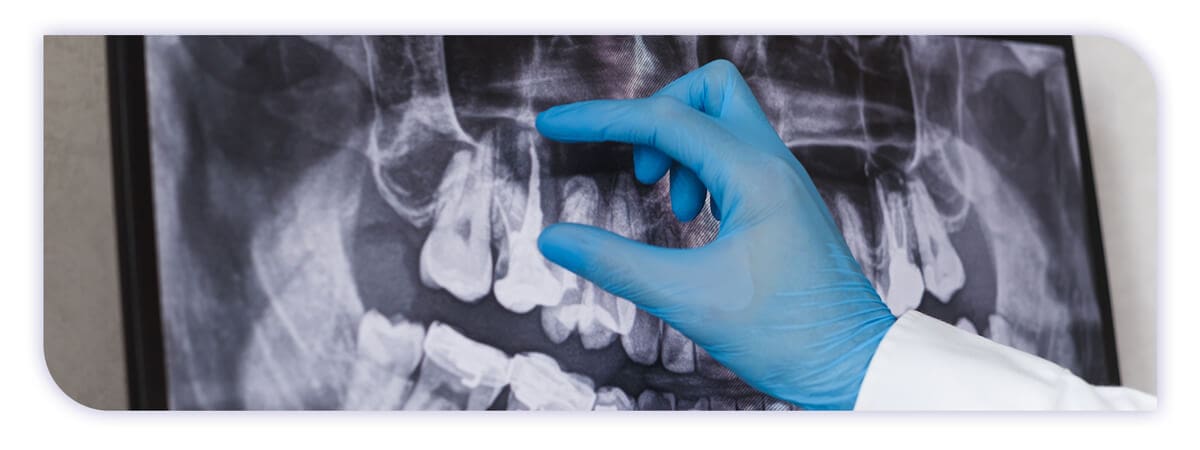Root Canal Treatment — How It’s Done
The best way to prepare for root canal treatment is to be fully informed beforehand.
Are you scheduled to have root canal treatment and are wondering exactly what it is and how it’s done? It’s a fairly common procedure and one aimed at saving a tooth which otherwise might have to be extracted. Usually, it’s done by your dentist, but if it’s a more complex case, you may be referred to an endodontist, a specialist in the internal parts of teeth who will do the work.
For whatever reason, most people automatically associate root canal treatment with a lot of severe pain and discomfort — perhaps this is from tales of long ago when dentistry wasn’t as advanced as it is now. The truth is, however, that having root canal treatment should be no more painful than having a filling or other dental procedure, as local anaesthetic is given to numb the areas being worked on and you really shouldn’t feel all that much.
One of the most important aspects of understanding root canal treatment is knowing what a tooth is. It’s not just a solid lump of enamel but is made up of a number of elements. What you can see — the enamel-coated crown — is only a small part of a tooth, as anyone who has had an extraction knows. The root comprises much of the size of the tooth and contains dentin, a harder-than-bone substance that occupies most of the main area of a tooth, the pulp chamber — and a root canal that contains pulp tissue and the accessory canal that’s worked on in root canal treatment. When the pulp becomes infected, it’s time to treat it or remove the tooth and this is essentially what root canal treatment is all about.
Steps in Root Canal Treatment
You may have symptoms that include pain or heat-and-cold sensitivity, or you may find that one or some of your teeth or gums are tender when you’re chewing or when touched. There can also be swelling in an area of the mouth, but, equally, there may be no symptoms at all and you could still need root canal treatment. The procedure usually takes place over a number of visits and begins with taking an X-Ray of the area to get a detailed look at the tooth or teeth in question, so your dentist can get a clear picture of what they need to do — is there an abscess under the tooth, for instance, and how big is it?
From there, your dentist or endodontist will make a small opening in the top, or crown, of the affected tooth and — making sure you are comfortable and properly anaesthetized — will use a number of small instruments to clean out the infected pulp from the chamber inside your tooth as well as in the root canal. When this is done, the areas are filled with a rubbery material and it’s sealed up with an adhesive cement to make sure it stays in place and there’s no leakage to cause additional problems.
During this time you shouldn’t experience too much discomfort and you can always ask your dentist to stop and allow you a break during the procedure. Some dentists like to give their patients a kind of hand signal to let them know to stop, as it’s not always possible to speak, due to the number of instruments in your mouth. Ensuring you’re as comfortable as possible during root canal treatment — or any other procedure — should be the goal of your dentist, and is a top priority here at The James Clinic.
What to Expect After Root Canal Treatment?
After your root canal treatment, your dentist may want to place a crown on your tooth to fully protect it and restore its function, although it’s not always necessary. The area may be sensitive for a while and it’s important to take care with what you chew, so you don’t risk upsetting the healing tooth and gum. You can expect your newly treated tooth to survive for many years, as long as you practice good oral hygiene and brush and floss regularly.
Hopefully, the infection that caused you to have root canal treatment will not return — in many cases it does not, although there may be a possibility that it does — and you can enjoy your life without further upset with this tooth. And as with everything concerning your teeth, there’s no need to be worried or concerned about having any procedure, including root canal treatment — as long you have a good dentist, talk it all over beforehand and are comfortable with what’s being done.
For more information about root canal treatments, or to schedule an examination to see if you need one, contact The James Clinic today and we will be happy to tell you all you need to know as well as carrying out an expert examination of your teeth.
